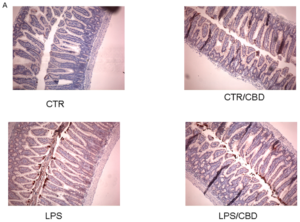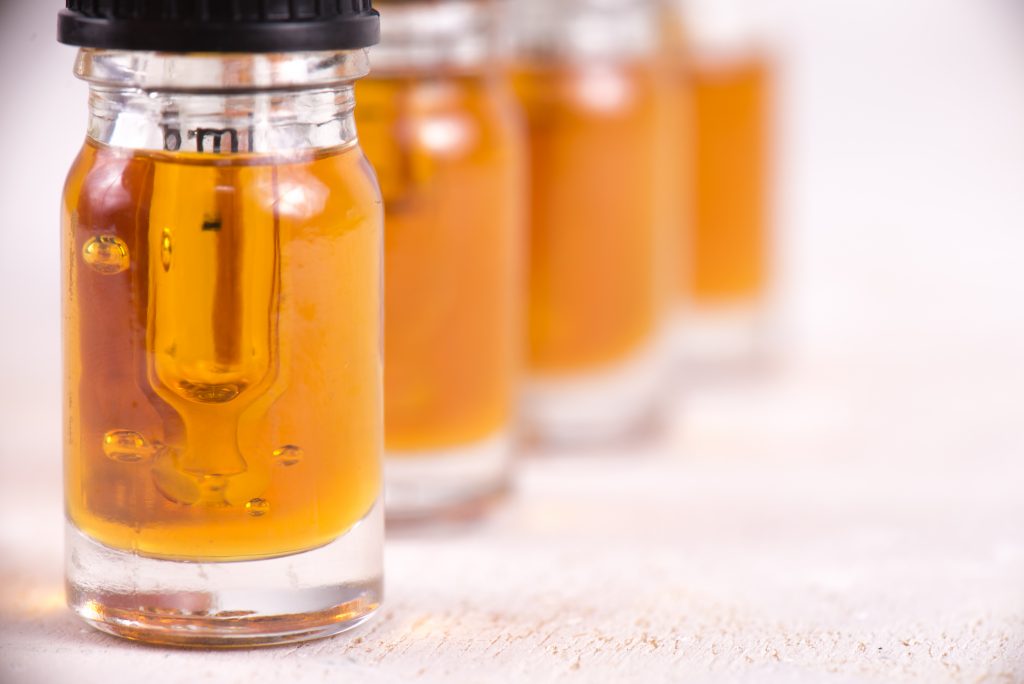In this study, published in PLOS ONE, researchers explored the role of cannabidiol for intestinal inflammation. This research looked enteric glial cells (EGC), which plays a fundamental role in the maintenance of gut homeostasis. They assure the correct trophism of vicinal neurons in the myenteric plexus and actively participate in the course of intestinal inflammation, where they appear as first defensive line against pathogens.
This study evaluated the following:
- The effect of CBD on enteroglial-derived S100B protein expression in a mouse model of acute intestinal inflammation and in rectal biopsies derived from patients with ulcerative colitis;
- The efficacy of CBD to prevent S100B-mediated amplification of inflammatory/immune response through the involvement of other immune cells such as macrophages and mast cells;
- The anti-apoptotic effect of CBD in course of inflammation, and;
- The involvement of PPAR-γ receptor, since recent data suggest that PPAR-γ activation may underlie some of the pharmacological effects of CBD.
Abstract/ Enteric glial cells (EGC) actively mediate acute and chronic inflammation in the gut; EGC proliferate and release neurotrophins, growth factors, and pro-inflammatory cytokines which, in turn, may amplify the immune response, representing a very important link between the nervous and immune systems in the intestine. Cannabidiol (CBD) is an interesting compound because of its ability to control reactive gliosis in the CNS, without any unwanted psychotropic effects. Therefore the rationale of our study was to investigate the effect of CBD on intestinal biopsies from patients with ulcerative colitis (UC) and from intestinal segments of mice with LPS-induced intestinal inflammation. CBD markedly counteracted reactive enteric gliosis in LPS-mice trough the massive reduction of astroglial signalling neurotrophin S100B.
Histological, biochemical and immunohistochemical data demonstrated that S100B decrease was associated with a considerable decrease in mast cell and macrophages in the intestine of LPS-treated mice after CBD treatment. Moreover the treatment of LPS-mice with CBD reduced TNF-α expression and the presence of cleaved caspase-3. Similar results were obtained in ex vivo cultured human derived colonic biopsies. See image below.
In biopsies of UC patients, both during active inflammation and in remission stimulated with LPS+INF-γ, an increased glial cell activation and intestinal damage were evidenced. CBD reduced the expression of S100B and iNOS proteins in the human biopsies confirming its well documented effect in septic mice. The activity of CBD is, at least partly, mediated via the selective PPAR-gamma receptor pathway. CBD targets enteric reactive gliosis, counteracts the inflammatory environment induced by LPS in mice and in human colonic cultures derived from UC patients. These actions lead to a reduction of intestinal damage mediated by PPARgamma receptor pathway. The results therefore indicate that CBD indeed unravels a new therapeutic strategy to treat inflammatory bowel diseases.






